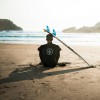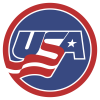Gameday Nutrition - Key #1
HYDRATION
I'm sure you've all seen Man Vs. Wild, where Bear Grylls defies death in every region of the earth. That guy is world class lunatic. I have every episode Tivoed. Part of me wants to see the Nascar crash, where he battles it out with a carnivorous bear in some deep backcountry wilderness but that's another story. While shooting an episode in the Australian outback he stated an amazing fact. He said that "humans can only survive a few hours in that heat without water". In this episode Bear goes as far as drinking his own pee for hydration. (Please don't try this at home.) But the fact of the matter is you can live around 5 weeks without food but without water a human can last only 5 days in normal circumstances. On average, the human body is about 60% water. Our brains are 70% water, our blood is 80% water and our lungs contain about 85% water. (It's hard to believe, but Dicky Dunn wrote it so it must be true.) Only oxygen is more vital to sustaining life. Throughout the day we lose water through regular perspiration, going to the bathroom, breathing, and of course perspiration by exercising. Hydration is by far the most important factor in your game preparation. If you're not properly hydrated your athletic performance will suffer. Even minor dehydration impairs contractile strength in the muscles, speed, concentration, coordination, reaction time, and stamina. Remember this, the human thirst mechanism is faulty, so waiting until you are thirsty to drink is TOO LATE. Hydration must be a priority for peak performance.
TIPS:
- As a guideline try to drink 1/2oz -1oz per pound/per day.
- 190 lbs = at least 95 oz fluid per day (2.75 - 5 liters per day).
- Weigh-in before and after practices, training, and games. There shouldn't be a drastic change either in weight loss or gain. (This is especially true for goalies. I remember hearing that Glen Healy lost 14 lbs in water weight during a game in the 1993 playoffs. Not only will this effect performance during the present game but also any future games.)
- Given the nature of a hockey game with 2 intermissions, athletes should consume electrolytes to enhance absorption and prevent cramping. Choose a carb/electrolyte drink for 16 oz- of your replacement fluids perhaps during an intermission, but then the rest of your fluid needs should be met with water. You don't need to replace all your fluids on the ice.
- Carb/electrolyte drinks- the concern with a number of the electrolyte drinks on the market is they are a combination of non-purified water, sucrose, glucose, fructose (sugars manufactured by factories from corn) and artificial colors with electrolytes (potassium and sodium) thrown in. More research needs to be done on the nutritional value of them. (With the explosion of new drinks onto the market including "energy drinks", you can drop a lot of money with little to no effect. (Might as well be drinking tap water) Some feel that they do more harm than good. You can't go wrong consuming natural mineral or spring water, fresh vegetable juice, or diluted fruit juices. But good 'ole water is still the best bet. Nothing replaces pure water for hydration. Try to get the other nutrients you need from your meals, not from marketed sugar drinks.
|
Pre-event |
Immediately prior to event |
During event |
Immediately Post event |
Post event recovery |
|
1-2 hours |
0-10 minutes |
Drink early (6-8 oz) & at regular intervals (10-15 min.) when possible
|
Take in carb/protein drink (2:1 or 3:1 ratio) & banana |
Re-hydrate: 20 oz per pound lost during competition. Tomato juice is good choice for part of this replacement |
|
17-20 oz |
7-10 oz |
|
EAS -Myoplex |
|
|
Water/shake |
Water/electrolytes |
|
Nutrilite - meal replacement |
|
|
|
|
|
Make your own: see recipes |
|
Game Day Hot Tip: Monitor your hydrations level by the color of your urine. The clearer the color, the better ... if you have bright yellow urine or it has a strong smell, start pumping the fluids.













